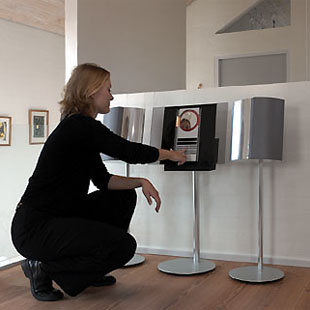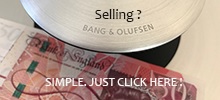Why Hard Disks?

Large-capacity storage
To play your ever-increasing CD collection you could buy a CD auto-changer, but these lumbering behemoths tend to be big, noisy and slow. Plus most of them don't even sound that great. Thankfully the 21st century has ushered in a new alternative: the hard disk.
Usually based on computer technology, hard disk audio recorders and storage devices offer maximum flexibility and save your pricey collection of CDs from wear and tear. You can rip individual tracks or whole albums to the hard disk and then catalogue your collection manually - or use an online service such as the CDDB database. From there you can create play lists of your favourite tracks by genre, artist, mood and date. Best of all, some of these systems are also multi-room-ready, enabling you to pump your favourite tracks around the house.
Today’s digital audio compression technologies such as MP3, Liquid Audio and others, have made it feasible to create high quality music files which can be stored on and played from our desktop and laptop PC hard disks and distributed over the Internet. As a result, a multitude of new software programs are now available to allow users to create PC-based libraries of their CD collections and download free or purchased music over the Internet. Perhaps even more important, it is making available a vast amount of new music recordings and performances from musical artists who might not have otherwise had a more traditional music distribution method available to them.
MP3, which stands for the ISO standard MPEG-1 (Moving Pictures Experts Group) layer 3 audio, has become the most popular music compression technology in use today. Dozens of freeware and shareware tools now exist which allow you to create, store and play MP3 files. Tools called CD Rippers allow you to convert your CDs into MP3 format files. Several programs are available which will index and categorise your songs on your hard disk drive by album, artist, genre, etc. In fact, many of these programs utilise the free CDDB audio CD database on the Internet to automatically add this information to your music database. You now have a jukebox style music player with which you can customize your music experience to your hearts content.
Music from the Net
There are also many sites on the Web which offer free and for purchase music and spoken word such as audio books, newspapers and radio programming. You download the files with your Web browser and store them on your hard disk for listening. These too can be added to your library database. Companies offering downloadable audio and music include MP3.com, a2b music, Liquid Music Network, Audible.com and many others.
Portable tunes
Several manufactures offer portable versions of these music players. These allow you to download song files from your PC and take the music with you.
The Hard Disk Drive
It is important to consider thinking about your hard disk drive capacity when building your own personal digital music library. It's easy to calculate the required storage space of MP3 music files. Typical MP3 files are 1 MB per minute of music. Therefore a 4 minute song requires roughly 4MB of disk space. A 60-minute CD requires 60MB. A CD library of 50 CDs would take around 3GB. While this used to seem like a lot, that’s 50 hours of music, and in today’s world of 1 and 2 TeraByte hard disks, that’s a tremendous value to the music lover.
Created: 9th January 2007
Modified: 6th February 2009


